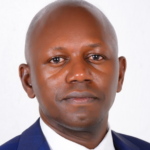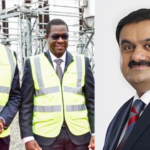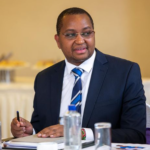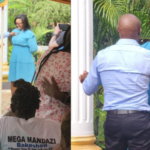[ad_1]
The IMF is facing criticism over a $280m bailout intended for Equatorial Guinea, a tiny oil-producing state in central Africa, where the long-serving regime of President Teodoro Obiang Nguema is accused of institutional corruption and human rights violations.
The IMF said the programme includes provisions that are meant to make the petrostate’s oil and gas industry more transparent. But anti-corruption and human rights groups warned that the IMF risks damaging its own reputation by lending its credibility to a regime with no history of serious reform.
“Knowing the penchant for corruption in this country, knowing about the human rights violations, I don’t see how [the IMF] can justify bailing this country out with millions of dollars that they should know will be squandered once again,” said Tutu Alicante, executive director of EG Justice, who like many Equatoguinean critics of the government lives in exile.
But the IMF’s programme in Equatorial Guinea, expected to be approved this month, is not unique. It is only the latest in a series of similar lending programmes the IMF has approved in central Africa in the past four years.
Nearby Gabon received a $642m bailout in 2017, while Republic of Congo got $450m in July. Both governments are oil producers like Equatorial Guinea, with comparatively high gross domestic product per capita but poor records on graft and public finance management. The governments in all three countries have been accused of profiting from corruption.
Rights groups and creditors challenged the IMF before it bailed out Republic of Congo, questioning the logic of funding a government accused of misappropriating large portions of its oil revenues and failing to honour its private debts. Now, eight civil society organisations, including Human Rights Watch, have sent a joint letter to the IMF asking it to delay its decision on Equatorial Guinea.
Sarah Saadoun, a researcher who works on corruption for Human Rights Watch, said the IMF programme would serve as a badge of validation for the Equatoguinean government, sending the wrong signal to potential partners about the state of the country’s politics.
“The IMF [will be giving] them the imprimatur of reform and that signals something to investors,” Ms Saadoun said. “In a country where rule of law and corruption are perennial issues for investors, that signal is very, very valuable for them.”
The IMF declined to comment. In October, it said the programme would help to promote financial stability, economic diversification, good governance and transparency.

Mr Obiang has ruled Equatorial Guinea with absolute power since 1979, when he overthrew his uncle in a violent coup. His regime has outlawed most opposition parties and arbitrary detention, extrajudicial killings and torture are all common.
American oil groups discovered giant crude deposits in the country’s maritime waters in the mid-1990s. Oil production has since generated billions of dollars in annual revenue for Mr Obiang’s administration but failed to improve the lives of most Equatoguineans
GDP per capita in the country of 1m people is among the best in Africa and higher than Turkey, Brazil and China, and yet its social indicators are some of the worst in the world.
The oil windfall funded a massive infrastructure building spree that has given the country some of Africa’s finest roads but also seen money misspent on boondoggles such as brand new luxury cities. The building bonanza collapsed, along with the economy, after the 2014 crash in the price of crude, which provides nearly all government revenue.
Still, the government says it does not need the bailout.
“Equatorial Guinea is not a country that needs $200m,” said Gabriel Obiang Lima, the minister of mines and hydrocarbons and one of the president’s sons. “We make that in two months.”
Mr Lima said the government had agreed to the IMF programme as an act of “solidarity” with the five other countries in the Central African Economic and Monetary Community, which share a currency. Most were hit hard by the oil price crash and began talks with the IMF for a regional programme in 2015. Chad, Cameroon and Central African Republic have also received support in the past four years.
Mr Lima dismissed the criticism from international human rights organisations and pointed to Equatorial Guinea’s evolving relationships with international bodies as proof that the country has changed.
“They are giving the indication of the development of the country,” he said. “[We already have an] agreement by IMF, we already have an agreement by the World Bank, how come those organisations don’t want to read or respect the report of [international institutions]?”
But the regime’s critics increasingly see the IMF and World Bank as part of the problem, arguing that their engagement with the government legitimises the economic crimes committed by members of the president’s family such as his son, vice-president Teodoro Nguema Obiang Mangue.
Better known as Teodorin, the deputy leader was convicted by a French judge in 2017 of siphoning off payments from investors to fund a lavish international lifestyle including a sprawling collection of yachts, supercars, mansions and fine art.
“Why would they bail out a violent kleptocracy with public money the amount of which could easily be covered in the blink of an eye by Teodorin selling a few of his cars in France?” said Simon Taylor, co-founder of Global Witness.
[ad_2]



















































